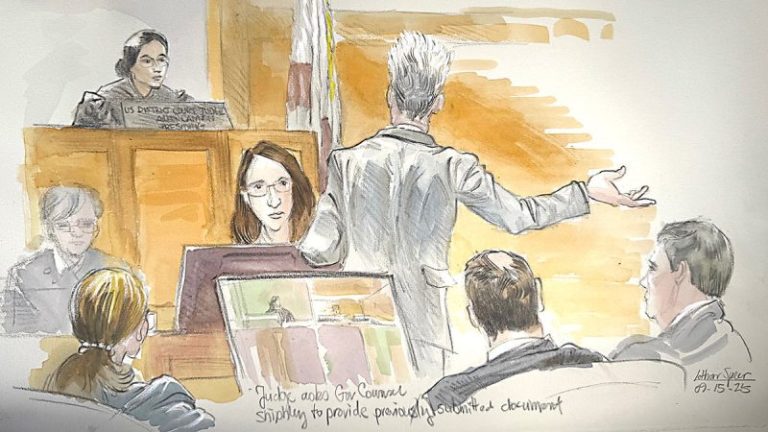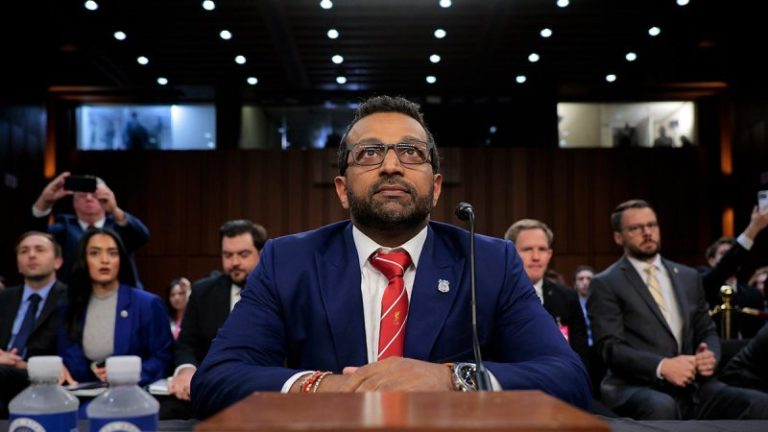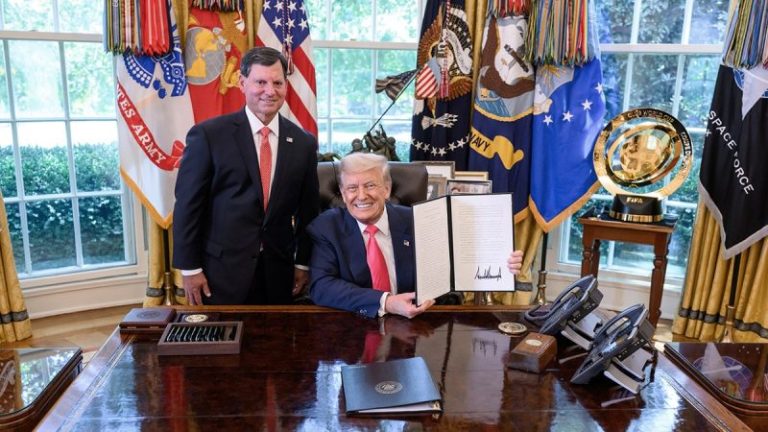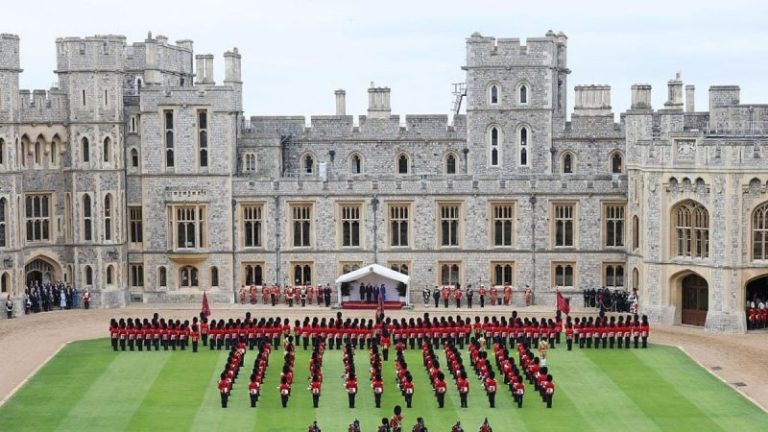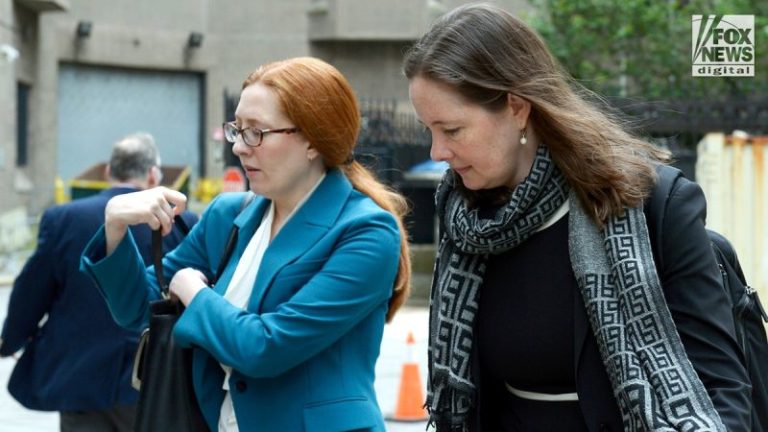Maurene Comey, a longtime U.S. prosecutor who helped bring criminal cases against Jeffrey Epstein and Ghislaine Maxwell, sued the Trump administration Monday over her abrupt firing from the Justice Department.
Comey had served at the U.S. attorney’s office for the Southern District of New York since 2015 before her ousting earlier this year. She called her termination unlawful, ‘politically motivated,’ and argued it stemmed largely from the fact that her father is former FBI Director James Comey.
In Monday’s lawsuit, Comey’s lawyers said her firing violated ‘multiple provisions’ of the Civil Service Reform Act — a law designed to protect government employees, including career federal prosecutors — as well as the First and Fifth Amendments of the U.S. Constitution.
‘The politically motivated termination of Ms. Comey — ostensibly under ‘Article II of the Constitution’ — upends bedrock principles of our democracy and justice system,’ her lawyers argued, describing her removal as both ‘unlawful and unconstitutional.’
‘Defendants have not provided any explanation whatsoever for terminating Ms. Comey,’ her lawyers argued. ‘In truth, there is no legitimate explanation. Rather, defendants fired Ms. Comey solely or substantially because her father is former FBI Director James B. Comey, or because of her perceived political affiliation and beliefs, or both.’
The lawsuit asks that Comey be reinstated to the Southern District of New York, where lawyers noted her work earned multiple awards, promotions and internal recognition, including a recent performance review calling her work ‘outstanding.’
It also cites protections afforded to career federal prosecutors, including prior notification and the ability to challenge a removal.
In the years since Comey joined SDNY in 2015, her lawyers said, she had been assigned to prosecute some of the department’s most high-profile cases — including the criminal cases against Epstein, Maxwell, and others. Most recently, in May, she led the prosecution against Sean ‘Diddy’ Combs.
Comey had been asked by the U.S. attorney’s office to lead a ‘major’ public corruption case just one day before she was fired, the lawsuit said, underscoring what her lawyers call the abrupt nature of her removal.
She was notified of her termination the next day in an emailed memo. The email did not list a cause or reason for removal, according to the lawsuit, though it made mention of ‘Article II,’ or the powers of the commander-in-chief.
U.S. Attorney Jay Clayton did not answer Comey when she pressed him for information on her firing, the lawsuit alleges. Instead, he told her, ‘All I can say is it came from Washington. I can’t tell you anything else.’
‘No other explanation was ever provided to Ms. Comey regarding the reason for her termination,’ her lawyers said. ‘Defendants had no lawful authority to terminate [the] plaintiff from federal service without adhering to the statutory protections afforded to her.’
They argued that this distinction should be taken to mean that Comey’s termination is ‘ultra vires,’ or beyond the scope of one’s authority — thus ‘without force or effect.’
‘The executive branch cannot use Article II to overrule Congress and remove career civil servants for perceived disloyalty,’ they added. ‘Such an act violates the Constitution’s fundamental Separation of Powers. It also violates the Bill of Rights, depriving Ms. Comey of protection under the First and Fifth Amendments.’
The Justice Department declined to comment on the lawsuit, which names the department, Attorney General Pamela Bondi, OPM, and the Executive Office of the President as defendants, among others.
It comes amid a years-long, high-profile dispute between President Donald Trump and former FBI Director James Comey, whom Trump fired during his first White House term in 2017, roughly five years into his 10-year tenure.
In the years since Comey’s departure, the two have continued to be sharply at odds. Comey has emerged as an outspoken Trump critic, both in public and in his memoir, ‘A Higher Loyalty.’ Comey came into the president’s crosshairs again earlier this year after he posted what was viewed by Trump allies as a cryptic social media post online; he has denied knowledge of its true meaning.
Trump, for his part, has continued to assail Comey and probe his tenure at the FBI. Earlier this year, the FBI confirmed it had launched criminal investigations into Comey and former CIA Director John Brennan for allegedly making false statements to Congress.
Details of the investigation were not immediately clear, and in the months since the FBI’s July announcement, there has been little information shared with the public about the nature or status of the probes.
The younger Comey was terminated about a week after the investigations were announced — a detail her lawyers highlighted in the lawsuit, which seeks her reinstatement and back pay.
In a farewell email sent to colleagues, Maurene Comey wrote, ‘If a career prosecutor can be fired without reason, fear may seep into the decisions of those who remain.’
‘Do not let that happen,’ she said.
This post appeared first on FOX NEWS

